A portrait of all graduates
Benjamin Paul Hofbauer
Works as a PhD student at TU Delft on a project on geoengineering and normative uncertainty.
Benjamin Hofbauer is researching the ethical aspects of climate engineering. Interventions in the climate system are highly controversial among scientists.
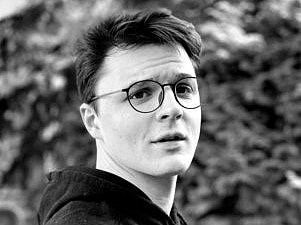
The PELP Joint Degree is a great opportunity
I completed my PELP degree in January 2020 - a moment I still look back on with joy and a little nostalgia. My first experiences with philosophy were at grammar school, where my youthful sense of rebellion was fueled by authors such as Nietzsche and Feyerabend. However, I left my initial interest in philosophy behind to study languages. Fortunately, I couldn't give up philosophy completely and kept returning to selective ethics lectures. In the end, I decided during my bachelor's degree to devote myself fully to philosophy after graduation.
This decision was made particularly easy for me by the PELP degree program, which is unique in Austria. The idea of working on philosophical aspects of politics, economics and law in seminars, reading texts and books and learning from discussions presented itself to me as a unique opportunity. Seminars and courses gave me deeper insights into the problems of practical philosophy and applied ethics, covering a wide range of topics. PELP offers students a wide range of opportunities for specialization, from political philosophy, environmental and climate ethics, to philosophy of law and economics, through collaboration with other departments at the university. The wide range of courses covers numerous subject areas. Due to the manageable size of the seminar groups, the lecturers are able to respond to students' individual questions and provide valuable support. This inspiring atmosphere helped me to find a topic for my Master's thesis after the first year. I decided to write about the ethical implications of technological mitigation strategies of climate change in the form of Carbon Capture & Sequestration.
Based on my decision, I was encouraged by my supervisor to switch to the joint degree, i.e. the PELP program in cooperation with Ruhr University Bochum. I spent a semester at the PELP partner university in Bochum to continue working on the topic of my Master's thesis there. Thanks to the support of the University of Graz and the Ruhr University Bochum, this move was straightforward and I moved into student accommodation in Germany just a few months after my transfer. Complementing and deepening the courses I had completed in Graz, I was supported by my second supervisor in Bochum. My approach to philosophy was significantly broadened by this semester abroad, which made this time crucial for the development of my academic ambitions.
After my return, I started working for my supervisor as a tutor for one of his lectures. At the same time, I had taken up a position as a policy advisor, which allowed me to apply the theoretical superstructure of philosophical thought as well as bring a certain amount of reflection to regional policy issues. By the time I finished my PELP degree, I was working both as a student assistant and in politics. Eventually, I decided to accept an internship at the European Parliament in Brussels. At first I thought that this would probably be the end of my philosophical career, but - as before - I couldn't stop philosophizing for long. After completing my internship, I took up a PhD position at TU Delft in the Netherlands, where I am currently working on geoengineering and normative uncertainties as part of a larger project.
The PELP program has offered me a wide range of opportunities. I would recommend the course to anyone who enjoys combining ethical issues with real-world problems and enjoys open discourse and diverse reading. One of the most essential elements that the PELP course and philosophy in general has given me and continues to give me on a daily basis is the incessant need to ask questions. The openness to grapple with the answers to these constant questions is also, I believe, why PELP provides an excellent career foundation beyond academic careers in the public and private sectors. I think that critical reasoning as a tool, combined with a sense of justice, are useful and attractive skills for a wide range of career opportunities. This is especially true in times of increasing uncertainty and ever more obvious injustices.
Stefanie Lehrner
Works in (operational) project management/communication at "tatwort - Nachhaltige Projekte" and wrote her master's thesis on the topic of "Love and friendship between humans and artificial companions. A moral-philosophical analysis based on cinematic thought experiments".
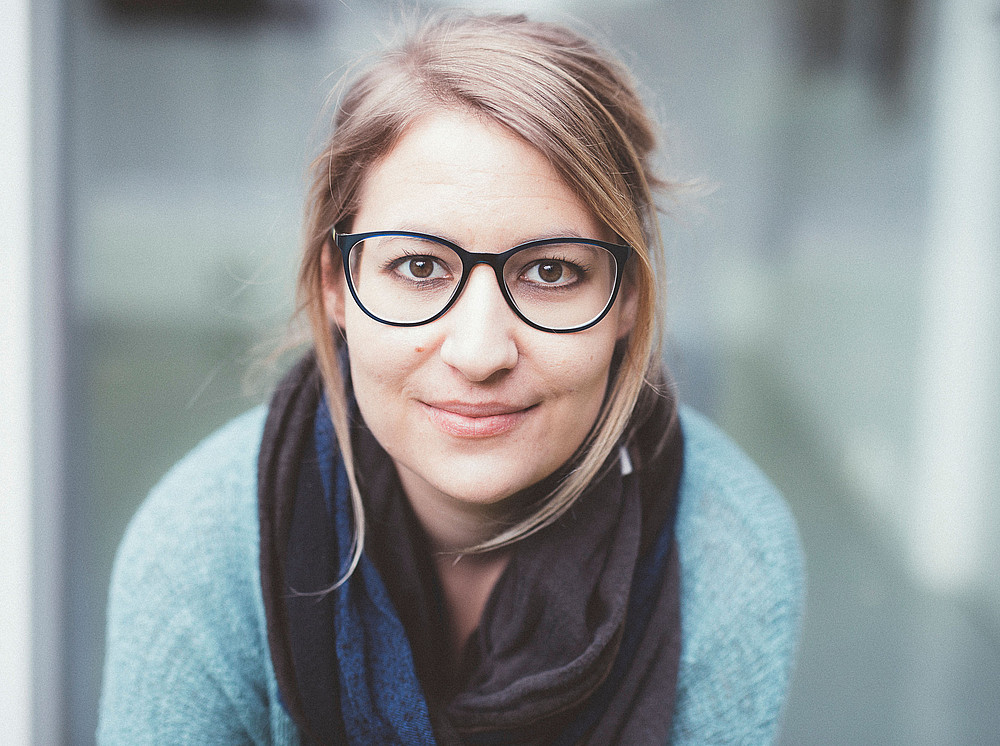
"Wouldn't that be something for you?"
I remember that a friend with whom I had studied "Journalism and Corporate Communication" at the FH Joanneum Graz drew my attention to the then still relatively new Master's degree program "PELP": "Wouldn't that be something for you?". She knew I had a soft spot for philosophy and knew that I was flirting with further education. My situation at the time: I was in my mid-20s, had completed the degree course I mentioned a few years ago and was working in public relations in the theater, which I really enjoyed and didn't want to give up. The course content and the interdisciplinary approach particularly appealed to me at PELP, but I hesitated at first and wondered whether I would be able to combine the Master's degree with my career. In fact, I decided to do it and pursued the course while working, but I also took a little more time and completed it step by step over several years.
What made me hesitate at first proved to be quite fruitful in the years that followed: the combination of theory and practice, or rather of scientific engagement with philosophical questions and professional activity, has promoted my holistic view of many things and some cross-connections have also emerged. As one of my passions is writing (both in journalistic and literary form), for example, topics covered in my studies have also found their way into my writing or, conversely, issues that have arisen in my working environment have motivated me to deal with them more intensively at university.
In general, studying PELP has made me more aware of moral issues and future challenges, including questions about climate change, social justice and technological developments. I would describe myself as a "generalist" with a wide range of interests (art & culture, environment & sustainability, media) - the PELP degree program suited me because it gave me the opportunity to set my own priorities in the curriculum. I can recommend the course to anyone who would like to deal with issues in the fields of politics, law and economics from a philosophical point of view and who is also willing to engage with topics that may seem unwieldy at first glance, but are well worthwhile. The course encourages analytical and networked thinking and familiarizes you with different moral philosophical positions. It gives you the methodology to think through a problem and the associated solutions consistently and from different angles and, as a side effect, also sharpens your use of language.
I can put these skills to good use in my current job, because after moving to Vienna and a few months of educational leave, during which I wrote my Master's thesis and completed my studies, I am currently working in the field of communication, project management and awareness-raising on environmental and sustainability issues. So far, I haven't regretted my decision to study and then - a few years later - I toasted my graduation with the friend I mentioned at the beginning.
Thomas Pölzler
Thomas Pölzler works as a researcher and lecturer at the Department of Practical Philosophy at the University of Graz and was the first graduate of the Master's program to write a Master's thesis entitled "Is Moral Nihilism a Significant Cause of Climate Change Inaction?" (September 2012).
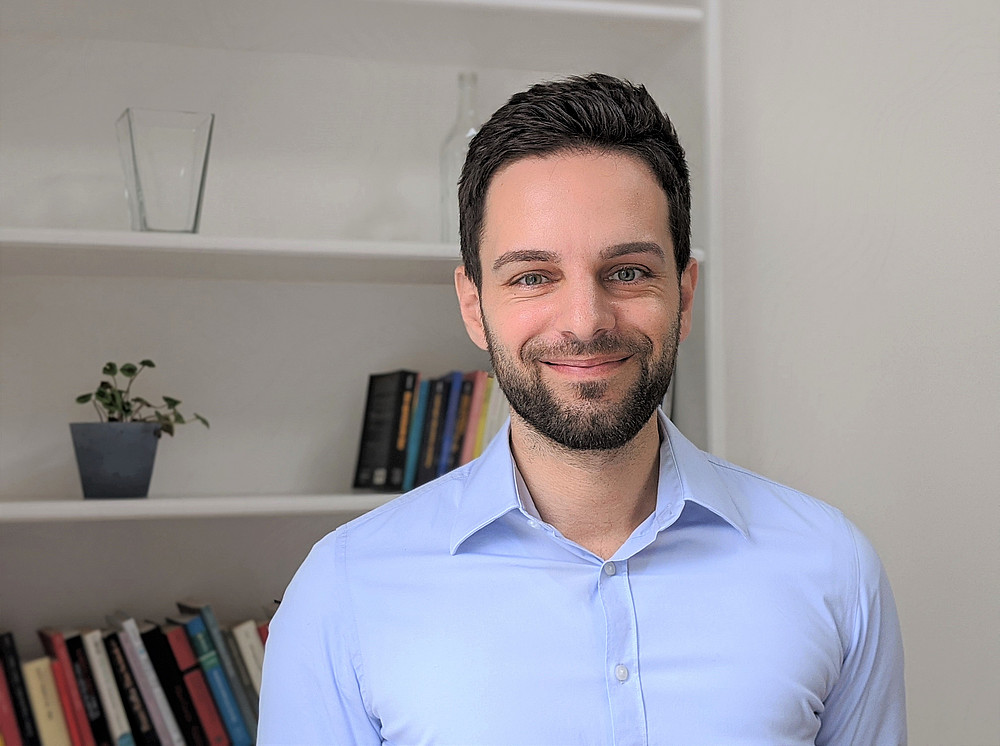
The first graduate
The first one? Indeed! It wasn't until a few years later that I found out that I was the first student to complete the PELP Master's degree at the University of Graz. That was in 2012. Even back then, I had flirted with a career in science. PELP certainly made a significant contribution to achieving this goal. Insights into social sciences, law and economics broadened my horizons in the long term. The research focus of the course allowed me to develop my own thinking on various socially relevant topics. Finally, I also took the opportunity to spend a semester abroad in Canada - the undisputed highlight of my time at university.
With my PELP degree as good as in the bag, I was awarded a two-year scholarship by the Faculty of Humanities in 2012 to conduct research on my dissertation, which I had been working on for some time. In it, I dealt with questions of moral psychology, particularly in connection with the objectivity of moral values. In 2014, the time had come: my efforts were rewarded with a position as a university assistant in the Department of Practical Philosophy. Shortly afterwards, my doctorate was also in the bag.
Since this turbulent and enjoyable time, I have worked almost continuously as a researcher and lecturer in Graz, interrupted only by a one-year stay in the USA as part of an FWF Schrödinger Fellowship. Not a classic post-PELP career path (but what is?); and one that also involves a lot of hard work and a fair amount of unpredictability. On the other hand, it is also a privilege to be able to deal with the exciting topics of this degree program professionally and to have great colleagues and a lot of freedom.
PELP has also left a lasting impression in my private life. The most fascinating thing for me was the contact with so many different moral intuitions, convictions and theories. At first, it was almost dizzying. If these great thinkers cannot come to a common denominator, if entire cultures are fundamentally inclined towards different values, how am I, as a single insignificant student, ever supposed to form a well-founded conviction?
So I think PELP has taught me greater moral humility. But what you also learn - especially in the many discussions and written assignments - is that abstention is not a solution. In the end, you have to consciously choose certain values to the best of your knowledge and belief and make them your own. As well as making us more aware of our responsibility for collective problems (such as climate change), the course can perhaps also help us to take more responsibility for ourselves.
Lucia Agaibi
Lucia Agaibi is working on a dissertation in the 'Historical Musicology' department at the scientific doctoral school of the University of Music and Performing Arts Graz and has written a master's thesis entitled "Zur aktuellen Bedeutung von Max Schelers Ressentimentanalyse" (July 2018).
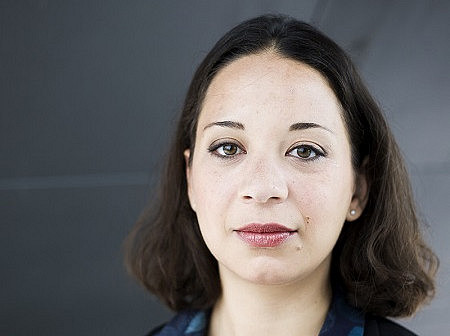
PELP as a catalyst for musicology
I studied musicology at the University of Music and Performing Arts Graz and the University of Graz and completed my master's degree with distinction in 2017. I also completed a master's degree in PELP at the University of Graz. I am currently working on my dissertation in the field of historical musicology at the academic doctoral school of the University of Music and Performing Arts Graz.
The decisive factor in my decision to study PELP was my Erasmus semester at Lund University in Sweden in 2012. There I took a course on modernism and postmodernism, which gave me an awareness of how important an engagement with philosophy, history and politics is for my own musicological research. I deal with polystylistic works from Austria after 1945. The attempt to adequately describe these works requires a thorough examination of the political and philosophical tendencies of the 20th century, because this posed major new challenges not only for the audience of Western art music, but above all for composers. The belief that music was the only autonomous art form that constituted its own realm, completely detached from external influences, proved to be a massive problem. This problem was addressed in at least two ways. On the one hand, the idea of aesthetically autonomous music - decoupled from worldly concerns - was transformed into an idea of the world as an object that we should understand with aesthetic recognition: Everything we hear can be music. On the other hand, from the late 1950s onwards, it was reconsidered and rejected by some composers as a reaction to the dogmatism of the leading Darmstadt avant-garde, which adhered to the principle of autonomy. Both approaches lead us in different ways and not always explicitly intended by the composers as socio-political criticism, but sometimes received accordingly by the audience, to a characteristic of postmodern art music, which often no longer sees itself as autonomous, but as relevant to the cultural, social and political context. Some artists in the 60s and 70s were convinced that art and musicality could show a viable way out of consumer society, as Cornelius Cardew's 1974 book "Stockhausen Serves Imperialism" testifies.
The PELP course was a useful and productive addition for me. Of course, not all the courses have fed into my musicological work, but it has been delightful to gain insights into different disciplines, to develop new interests and skills, and to get to know and categorize my own (everyday) viewpoints anew, sometimes as the tips of huge theoretical icebergs, which I consider a valuable tool, because knowing the background to a banal viewpoint that you somehow adopt from someone at some point makes it easier to reflect on how much you yourself agree with holding it.
Daniel Kurzmann
Daniel Kurzmann works as a lawyer in data protection coordination at Graz University of Technology and wrote his master's thesis "Dirty Hands in Democracies: A Problem, a Reality, and an Chance" in April 2016.
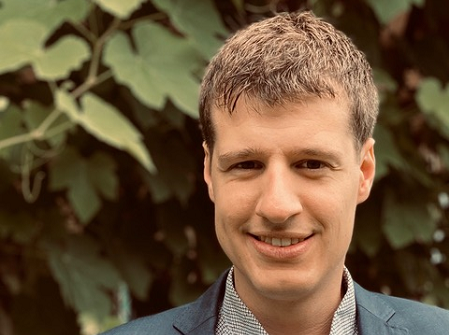
PELP - a decision for life
During my bachelor's degree in philosophy, I became more interested in questions of practical philosophy, specifically ethics and political philosophy. I wrote my Bachelor's thesis with Lukas Meyer in the field of climate justice. The decision to study for a Master's degree in Political, Economic and Legal Philosophy (PELP) was quickly made to fit in harmoniously with my parallel studies in law. During this time, I also got to know university life from a different perspective, namely as a student assistant and tutor for several lectures with Lukas Meyer and later with Harald Stelzer. Thanks to the appealing interdisciplinary orientation and the associated multi-layered perspectives on socially relevant issues, the PELP Master's program enriched my intellectual horizon and my creative thinking. I wrote my Master's thesis in English on the problem of 'dirty hands' in democracies, again under the supervision of Lukas Meyer. The PELP Master's program also helped me with the interdisciplinary part of my legal thesis on digital copyright and the music industry, in which I was able to contribute not only legal, but also economic and philosophical points of view on the topic.
The exchange with students and lecturers from other disciplines, their different approaches and values, as well as the curiosity they conveyed about the opinions of others, had a great impact on me as a person for my entire life. Inspired by this breeding ground of tolerance and this legitimate feeling of assisting the good - figuratively speaking - by listening and understanding, I refined my two studies with mediation training at the Center for Social Competence. After part-time excursions into journalism, I completed my court practice in Graz and Feldbach after completing my university studies and gained valuable insights into legal conflicts and their legal solutions at the district court and regional court. Since then I have been working as a lawyer in data protection coordination at Graz University of Technology. As an important fundamental right, data protection as a cross-sectional subject is home to many ethical issues as well as legal ones. In my day-to-day legal work, I benefit from the interdisciplinary approach that I learned to appreciate so much on the PELP Master's program.
For me, being political or acting politically in a more abstract sense means taking responsibility for the common, successful life in a community, in a state, in a society, detached from the pursuit of mere individual interests. This often goes hand in hand with difficult distribution decisions by those politically responsible: who gets which and how many goods in a society? What criteria are used to distribute these goods? For example, according to individual need, individual performance or even membership of a particular group? For me, acting politically in a broad sense means taking care of the good life in a society, taking responsibility for others and looking after the common good. On a smaller scale, political action for me means standing up for others, in concrete terms: civil courage. In this sense, we can all act politically or be political actors for our fellow human beings every day.
Dora Lenhart
Dora Lenhart works as a secondary school teacher and completed her Master's thesis "Should Governments Influence Their Citizens' Choices in Order to Prevent Future Climate Change?" in October 2017.
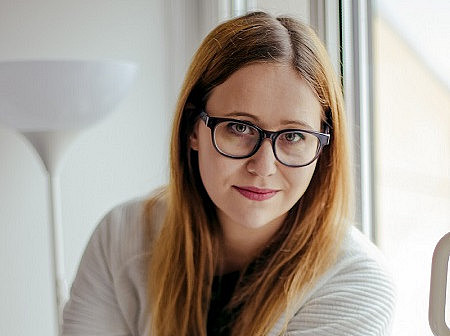
A springboard into the teaching profession?
I was in the third semester of my Bachelor's degree in Philosophy at the University of Graz when the "Political, Economic and Legal Philosophy" program was founded. At the time, I was mainly interested in political philosophy and the program sounded interesting. I was particularly interested in the topic of climate justice. The course was even more interesting and extensive than I initially thought. The central topics that I kept choosing in the courses were climate justice, social justice, gender studies and ethics - and I can now say with certainty that I have the tools to continue studying philosophy and all other social issues.
During my studies, I didn't think too much about what my career would look like. I just wanted to find out as much as possible about the topics of practical philosophy, learn about them and maybe produce something of my own in the end. In my Master's thesis with Prof. Dr. Lukas Meyer, I wrote about libertarian paternalism and its means for fighting climate change and successfully completed my studies. I enrolled in a doctoral program in philosophy at the University of Graz. In my dissertation, I want to create a feminist critique of libertarianism and communitarianism.
But this is a long-term goal, because I obtained an additional qualification at the University of Maribor in Slovenia, which enables me to teach. Since then, I have been teaching philosophy at the Poljane grammar school in Ljubljana. It's not a typical life path for a PELP graduate, but it's the best one I could have chosen. The PELP degree is extremely helpful, because philosophy can also be chosen as an elective subject in the Matura examination in Slovenia. This means that a group of students work on a text from the Western philosophical canon and a topic with their teacher for an entire school year. The topic we are currently working on is "Individual and Society" and is therefore one that is also central to the PELP master's degree. In my opinion, the topic is very suitable for students aged around 18 to reflect on what is going on in society. This is important because they now have the right to vote and are on the cusp of adulthood in all aspects, which means they have to learn to take responsibility.
From my point of view, what you get in the PELP course is, above all, the philosophical tools to delve into the issues that move society. I see the task of PELP graduates as holding up a mirror to society and criticizing it. That should generally be the task of philosophy - to analyze and criticize the existing system and examine possible alternatives.
When I look at the current political situation in Europe, and especially in Slovenia, where I moved back to after completing my studies, we are living in dangerous times: Authoritarian, nationalist policies have overflowed the political space. In such times, the tools acquired through PELP studies are extremely important. It seems that the hard-won values such as justice, freedom and democracy will soon be a thing of the past, just a sweet memory. The task before us philosophers is to protect these values that we may have taken for granted until now. We must take an active role, create an analysis and critique to stop unjust laws and legislators. We must act as moral agents, regardless of what the government demands of us, and through active thinking, through the power of our minds, create a society in which every person will be able to act autonomously and in solidarity with other people.